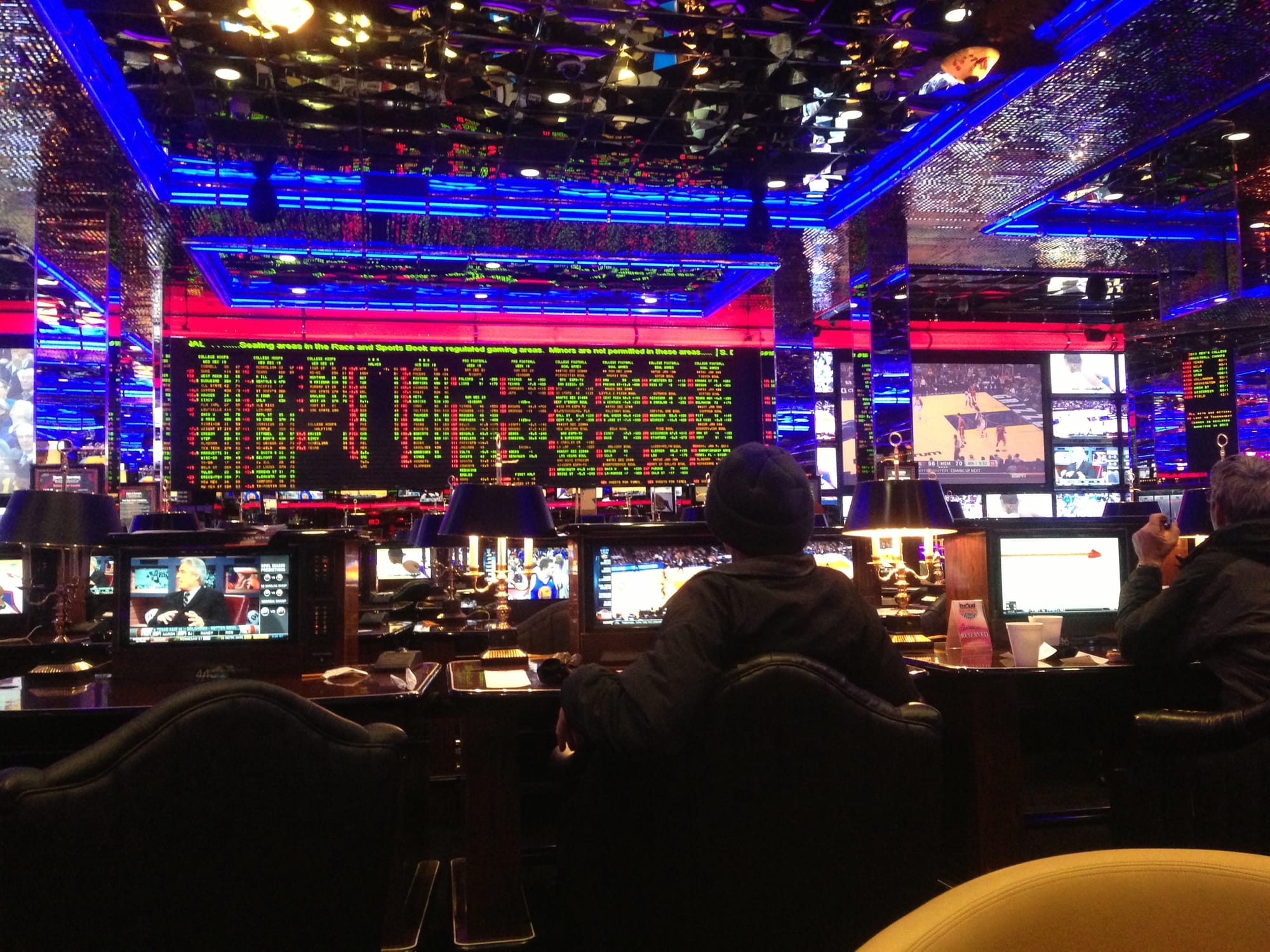The Sports Betting Industry Thinks You're a Loser

by Colin McGowan
What will we tolerate in pursuit of the feeling sports provide? We put up with all the advertising: televised games have felt, for quite a while now, as if they take place within the fictional universe of a never-ending insurance commercial. There are corporate logos on the jerseys, in the field of play, dominating the in-stadia video board real estate. Where a logo can’t physically fit in, computers project a simulated one onto the TV broadcast. Three-pointers and home runs are sponsored by banks and website hosting services; players are pitching you shampoo and regrettable lunchtime decisions. There is no way around this, no extra-pricey ticket or premium broadcast option that can elevate you to the status of a plain spectator, someone with a pure interest in the game. The leagues that own the action insist that you are an effervescent stream of consumer data, you are a wallet with legs. We have the power only to disagree. Squinting through the miasma, we take in something close to god.
No one would pay hundreds of dollars and endure the carnival-meets-corporate-retreat atmosphere of an NBA game if Steph Curry wasn’t there, pouring in jumpers from just past halfcourt. That is the real and beautiful thing that sports team owners, whose wealth mostly originated in various business and financial sectors, but who are all leading lights in what you might call the cynicism industry, are literally invested in. This is the sublimity that you, a celebrated innovator in the predatory mortgage space or maybe just some rich guy’s kid, are exploiting. It makes all your sell-offs and shakedowns possible.
It’s a paywall, but a small one
Read this post and get our weekdaily newsletter for $3 a month
